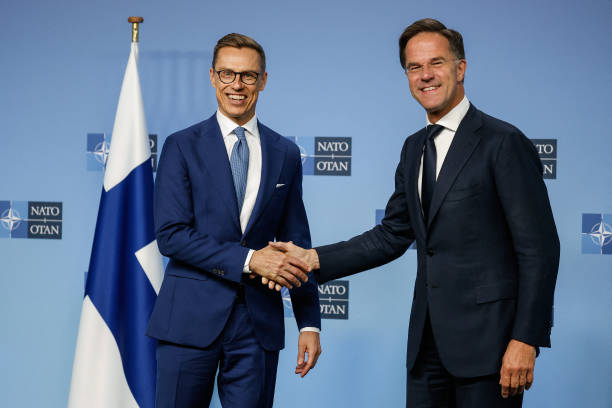European Heavyweights Head to Washington to Strengthen Support for Kyiv

Europe is sending influential leaders to Washington alongside the Ukrainian president to bolster support for Kyiv and avoid escalation in a crucial diplomatic round aimed at ending Russia's war against Ukraine.
The Gaze reports on it, referring to Politico.
Contrary to expectations, Trump's meeting with Putin in Alaska did not bring any breakthroughs and left further steps uncertain. The Gaze previously informed that Trump plans to meet with Zelensky on Monday and then try to bring the Ukrainian and Russian leaders together to work on a peace agreement.
Europe and Ukraine view Monday's summit as a critical moment to prevent Trump from agreeing to Putin's unacceptable demands, particularly regarding the transfer of part of Ukrainian territory.
European allies are keen to avoid any conflicts or misunderstandings with Zelensky that could undermine relations at this delicate time, given the negative experience of the February meeting at the White House. To strengthen Kyiv's position, Europeans are preparing additional steps.
According to two European diplomats, one of Trump's favorite interlocutors, Finnish President Alexander Stubb, is expected to accompany Zelenskyy to Washington. His task is to help avoid conflicts between Trump and Zelenskyy and to convince the US president to involve Europe in further negotiations.
NATO Secretary General Mark Rutte, who has established a strong and trusting relationship with Trump, may also visit Washington, according to a knowledgeable source.
On the eve of the summit, Trump confirmed that America was ready to play a role in security guarantees to contain Russia after the conclusion of a peace agreement. Leaders in Northern and Baltic Europe responded positively to these assurances after Trump's communication with European officials.
Despite active consultations with Europe before and after the summit with Putin, they did not yield any tangible results. European officials are relieved that Trump did not agree to a deal with Putin, but at the same time disappointed by the postponement of the threat of secondary tariffs against third countries that buy Russian oil.
“They want to try to influence the negotiation process as much as possible, because they know Trump really wants to do it this way, and they don’t want to leave the initiative to Putin,” said Giuseppe Spatafora, a former NATO official.
“In general, the Europeans talk much more often to Trump than during the first 100 days, which is good. They have influence. But it’s limited,” he added.
As The Gaze informed earlier, American Republican Senator Lindsey Graham is confident that if a trilateral meeting between the leaders of Ukraine, the United States and Russia takes place, the war will end in 2025.